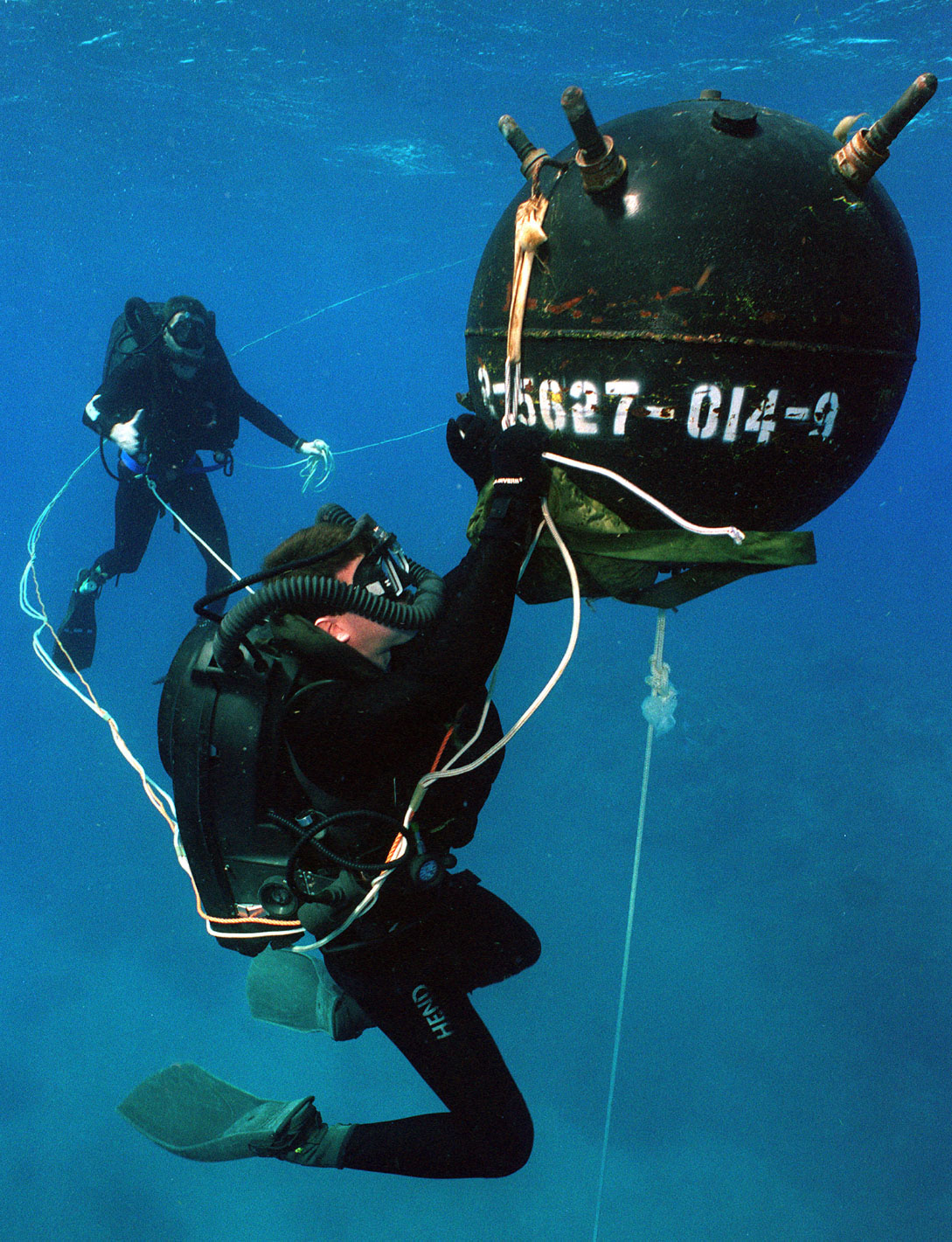One objective of warfare is the completion of tasks with minimal loss of friendly and civilian lives. One excellent way of doing this is by having intelligent machines perform tasks such as hostile removal, reconnaissance, and cargo removal. Currently this sort of function is performed by military departments such as the United States Naval Explosive Ordinance Disposal unit. 
The purpose of MARV is to provide a functional way of locating and recovering underwater cargo for return to friendly base. It is assumed MARV will encounter hostiles along the way and in order to complete his task he will have to remove the hostile installations before being able to recover the cargo..
MARV’s platform will be constructed of a balance of buoyant materials and weighted materials to provide a balanced neutral float in the water. He will be equipped with propellers for underwater propulsion and continuous track for above ground motion.
Underwater propulsion units will be constructed out of high RPM geared motors (~250-300 RPM). These units will likely be constructed of PVC and placed in mineral oil to reduce effects of wear on the gears and coils due to being underwater. The motors themselves will work underwater, but the concern is for the rusting and wear of coils mostly.
Sensors are a tricky thing on underwater vehicles. Many things that work above ground work differently or not at all when submerged in water. The main sensor used on MARV will be an CMUcam for color detection. The color detection will be used for underwater navigation and targeting activities. Light activation will be used to start MARV from his home base along the lined path to the waters edge. In addition there will be sensors for detecting the presence and possibly the depth of the water. Other sensors may be added as necessary such as a compass and gyros for maintaining true direction and keeping MARV level in the water.